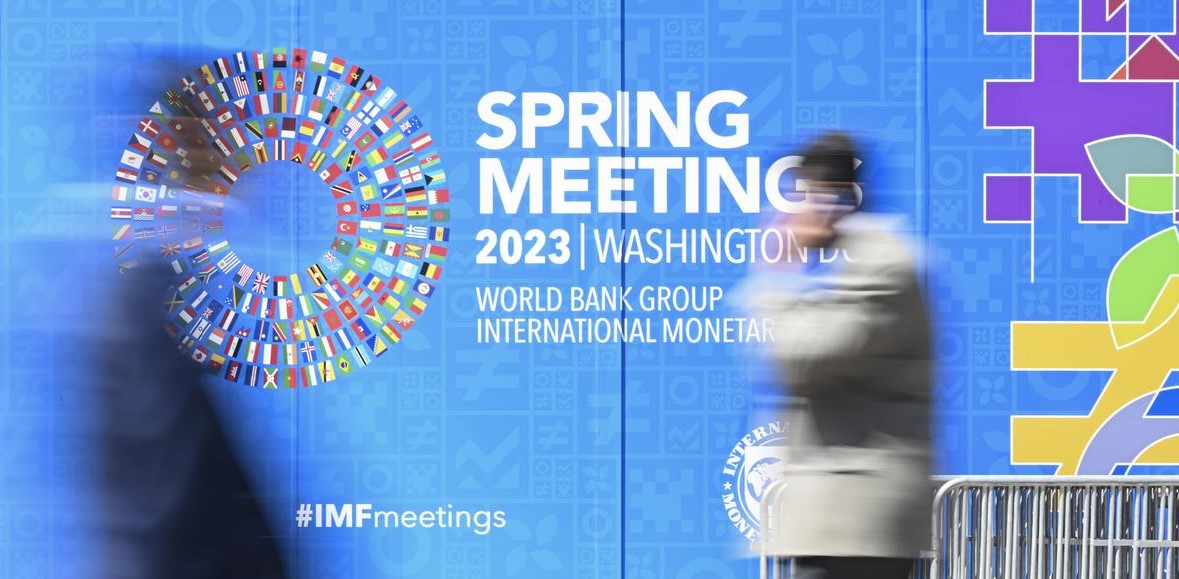Empowering the next billion: governance for a digital-first future
April 20, 2023 l By Tim Murphy, Chief Administrative Officer, Mastercard
The digital economy is expanding. More people, more data and new technology are both unlocking opportunity and adding complexity within our existing digital governance framework. How do we find a balanced approach that keeps inclusion at the heart of this transformation?
This question was top-of-mind earlier this month as business and government leaders from around the world gathered in Washington, D.C., for the World Bank and IMF Spring Meetings. It’s something we think about constantly at Mastercard, a technology company that is shaping the future of commerce. From our view, there are three key trends that should inform how we all think about global governance of the digital economy:
- Greater access and inclusion. For years, policymakers and companies have discussed the growth potential of the “next billion users” who are waiting to come online. That number is no longer a prediction but a present reality, and we are now starting to feel the power of greater inclusion.
One shift that we’re tracking is the locus of digital connectivity moving away from North America and Europe and into Asia and Africa. Mobile data usage tripling in India and surpassing the average usage of U.S. consumers is just one example of how this is playing out.
This is exciting, game-changing news and the result of ongoing digital and financial inclusion efforts around the world. The central matter now is making sure that governments and companies are properly equipped to best serve the increasingly digitized global consumer base.
- Accelerated innovation. The pace of innovation is accelerating beyond policymakers’ ability to keep up. By the time new technologies dominate the headlines, they are already reshaping our lives and adding new layers to the digital economy. We see this in the recent global debates about generative AI and other powerful emerging technologies.
We know this first-hand at Mastercard because we’re mobilizing innovation at both the product and network levels. We do this with trust, security and responsibility first and foremost, but policymakers cannot assume this is true for all emerging tech players. An open, collaborative and constructive dialogue between the private and public sectors is critical for ensuring the right guardrails are in place for securing the ecosystem while still incentivizing innovation.
- Deeper fragmentation. The global digital ecosystem is splintering due to several factors, including rising digital sovereignty and economic nationalism, barriers to the free flow of data, distrust in large tech companies and the breakdown of the multilateral trading order. Unless we push back against these trends, people will continue to be siloed and restricted in their opportunity even as they come online.
The goal of bringing more into the digital financial mainstream is to create a more equitable economy, to deliver global opportunities directly to individuals’ digital doorsteps.
As we consider these trends and strategize for a digital-first future, the first priority is maintaining and strengthening trust in the ecosystem. At Mastercard, we are laser-focused on this every day, bringing together dynamic cybersecurity solutions, world-class privacy safeguards and the highest standards of data responsibility to provide our stakeholders around the world a network and experience that they can trust day in and day out.
Extending this same level of trust across the entire digital ecosystem requires a cohesive effort from companies like Mastercard and governments around the world. Multilateral development organizations, like the World Bank and IMF, play an essential role in bringing these players together and promoting good governance, harmonization and interoperability. The convening power and influence of these organizations helps drive global standards and identify commercially sustainable models for development.
At this critical inflection point for the digital economy, transparency and collaboration are the cornerstones of good governance. This is how we make global financial systems work for everyone, everywhere.

